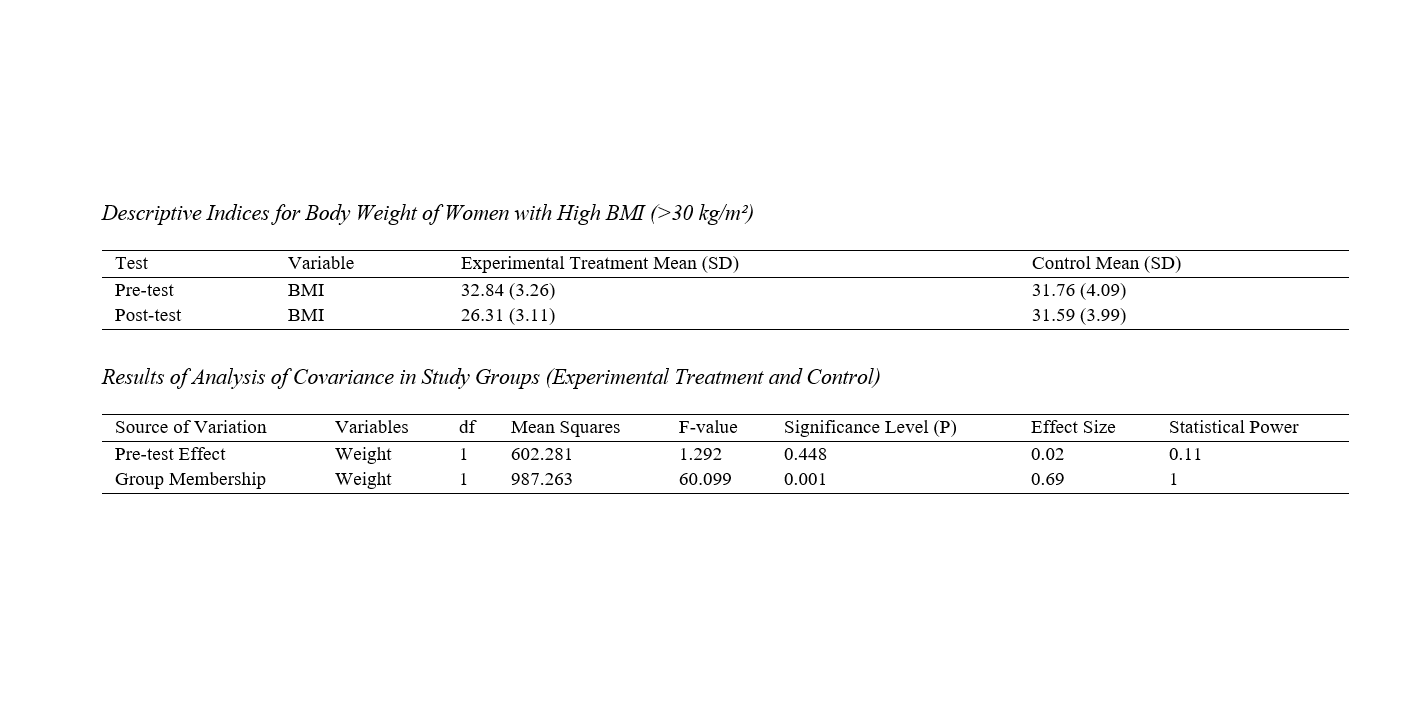The Impact of Coping Therapy on the Weight of Women with a Body Mass Index Over 30 Seeking Weight Loss
Keywords:
Coping therapy, Coping mechanisms, Primary appraisal, Secondary appraisal, Weight loss, Body Mass Index (BMI) , womenAbstract
Objective: This study examines the effectiveness of coping therapy in reducing the weight of women with a body mass index (BMI) over 30 who are seeking weight loss.
Methods and Materials: This quasi-experimental research utilized a pre-test and post-test control group design. The population included all women with a BMI over 30 who sought weight loss at medical and psychological centers in Tehran during 2021. A total of 40 participants were selected using convenience and voluntary sampling methods and were randomly assigned into two groups of 20, comprising an experimental group and a control group. Participants in both groups were weighed, and their BMI was calculated before and after the intervention. The experimental group underwent ten sessions of coping therapy, each lasting 90 minutes. Data were analyzed using SPSS software, version 22.
Results: Analysis of covariance indicated that coping therapy significantly reduced the weight of women with a BMI over 30 who were seeking weight loss (P<0.001).
Conclusion: Coping therapy appears to be an effective intervention for weight loss. Through a primary and secondary appraisal process, it modifies inefficient coping mechanisms into effective ones. Specialists can incorporate the findings of this study into their therapeutic and intervention strategies to facilitate weight loss in obese women.
Downloads

Downloads
Additional Files
Published
Submitted
Revised
Accepted
Issue
Section
License
Copyright (c) 2024 Sara Jabalameli (Author); Alireza Aghayousefi (Corresponding Author); Masoud Gholamali Lavasani (Author)

This work is licensed under a Creative Commons Attribution-NonCommercial 4.0 International License.
















